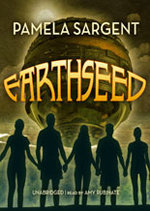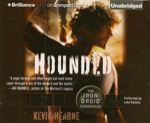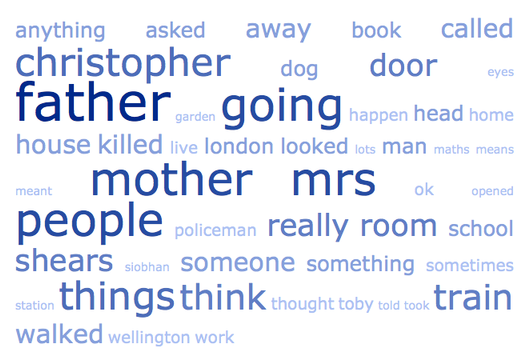
 Earthseed (The Seed Trilogy, #1)
Earthseed (The Seed Trilogy, #1)
Written by Pamela Sargent; Read by Amy Rubinate
8 hours [UNABRIDGED]
Publisher: Blackstone Audio
Published: December 2011
ISBN: 9781455118335
Themes: / space colonies / adventure / science fiction / space /
Awards: AudioFile Earphones Award; ALA Best Books for Young Adults Selection, 1983
Publisher Summary:
Ship hurtles through space. Deep within its core it carries the seed of humankind. Launched by the people of a dying Earth over a century ago, its mission is to find a habitable world for the children—fifteen-year-old Zoheret and her shipmates—whom it has created from its genetic banks.
To Zoheret and her shipmates, Ship has been mother, father, and loving teacher, preparing them for their biggest challenge: to survive on their own, on an uninhabited planet, without Ship’s protection. Now that day is almost upon them, but are they ready? Ship devises a test, and suddenly instincts that have been latent for over a hundred years take over. Zoheret watches as friends become strangers—and enemies. Can Zoheret and her companions overcome the biggest obstacle to the survival of the human race—themselves?
It is understandable why this book is getting attention again, almost 30 years since it was written: it’s another YA book that is similar to The Hunger Games.
In Earthseed, the reader is introduced to Zoheret, one of many teenagers aboard a ship traveling through space. Zoheret, and her ship mates, were all “born” on the ship, created by the ship (known as “Ship”) from DNA samples of Ship’s creator. Ship was sent from Earth with samples (and programming) from “the last of humanity on Earth,” set with a mission to find another world where no intelligent life exists and “seed” the world with humans. Ship raised these kids (about 50ish in total) from birth, teaching them, fulfilling a parental role. We enter the story as the kids, now teens, are getting ready to spend time in the “holo” (I presume it’s “holo” and not “hollow,” either way, it’s a wilderness environment on-board the ship) to train for what it will be like on the surface of the planet.
At this point, I’m sure you’re thinking that some Lord of the Flies type story is going to happen (I know that’s what I thought), and in fact there are some parallels between Lord of the Flies and Earthseed. However, Sargent does a wonderful job of making the story engaging with some surprising twists and turns along the way. While listening, I felt myself making excuses to listen to more of the story, not wanting to stop. I won’t spoil the story, but I will say that at the end, Ship’s residents find themselves making a life on the surface of the new planet and Ship goes off to seed another world.
I thought Amy Rubinate’s narration was superb. I normally don’t care for female narrators; usually they sound too dramatic for my taste. But Rubinate did a great job. I could always distinguish the voices of the characters, whether it was two females, two males, or a male and a female talking, and at no point did I feel like it was overdramatized. Also, the voice she used for Ship was a perfect matronly but somewhat robotic voice.
All three books in The Seed Trilogy are available in audio from Blackstone – Farseed (Book #2) and Seed Seeker (Book #3).
Review by terpkristin.









 Tunnel in the Sky
Tunnel in the Sky